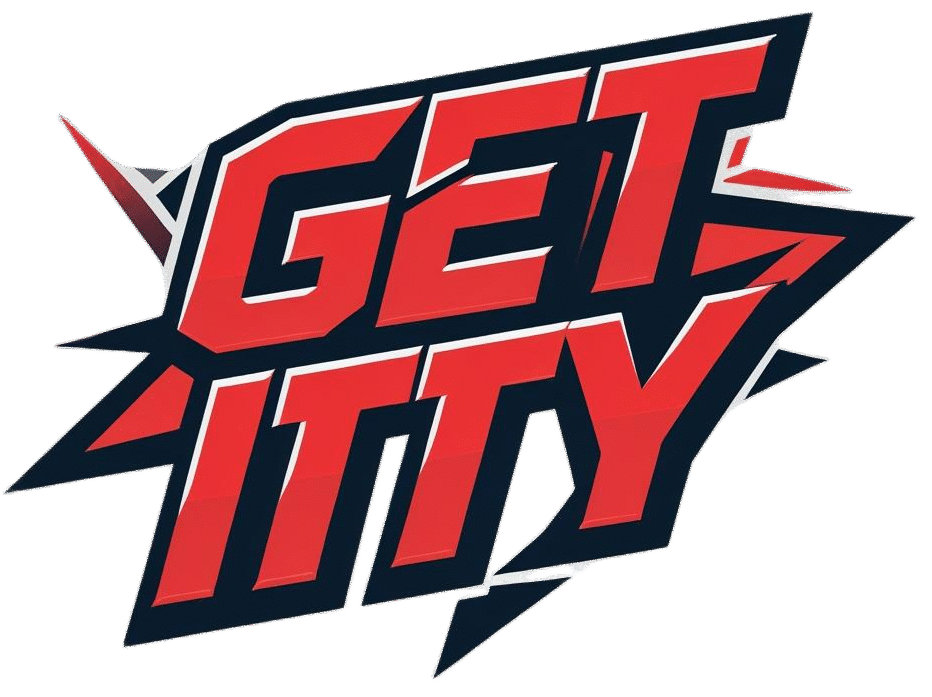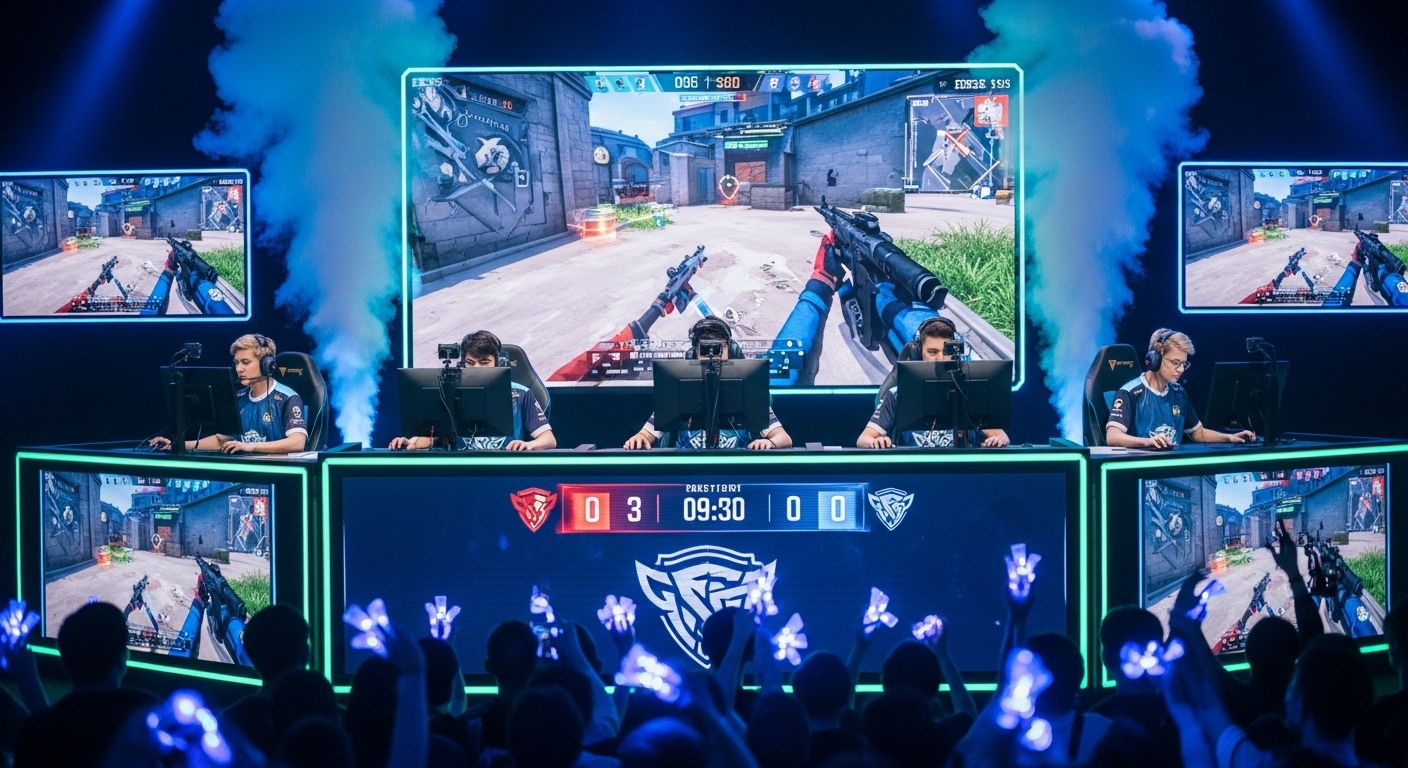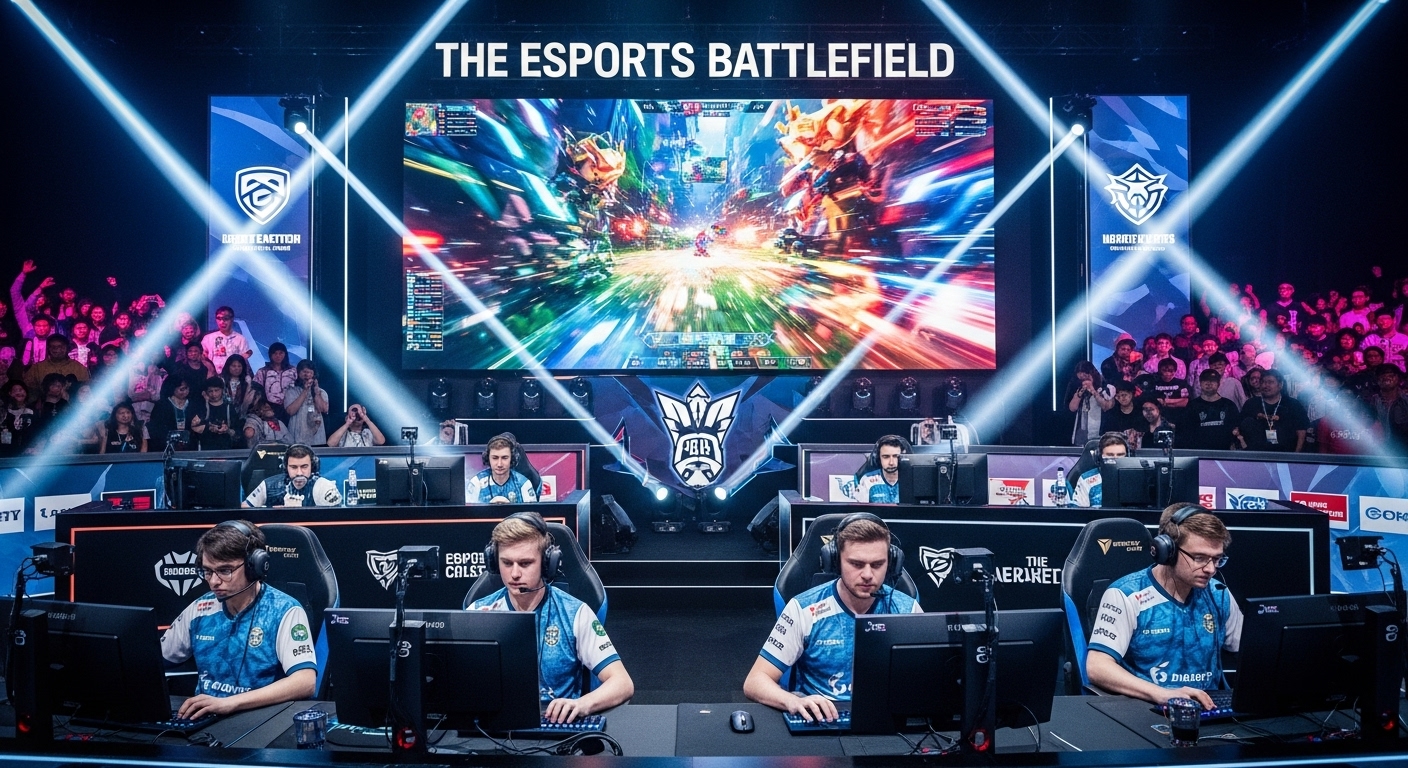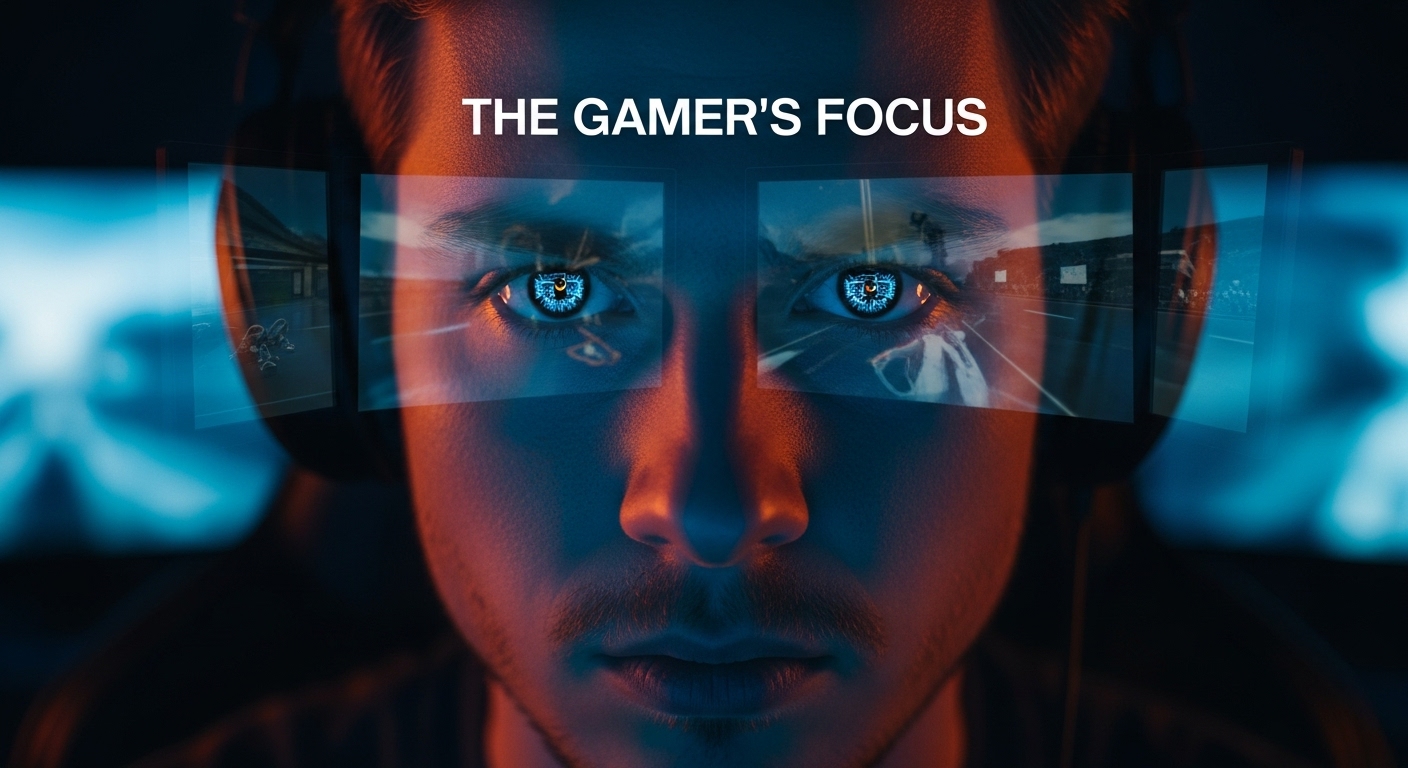Esports has emerged as one of the most exciting and fast-growing segments in the entertainment industry. What was once considered a niche hobby has rapidly evolved into a global phenomenon, drawing millions of viewers and participants from every corner of the world. Competitive gaming is no longer confined to the arcades or local LAN parties; it has become a professional sport, with athletes, teams, and entire leagues competing at the highest level. In this blog post, we’ll explore the rise of esports, its impact on gaming culture, and what the future holds for this electrifying industry.
What is Esports?
Esports, short for electronic sports, refers to organized, multiplayer video game competitions, particularly between professional players, individually or as teams. These competitions often feature popular video games such as League of Legends, Dota 2, Counter-Strike: Global Offensive, Fortnite, and Overwatch, where top players from around the world battle for prestige, sponsorships, and large cash prizes. Esports events are typically streamed live, with millions of viewers tuning in on platforms like Twitch, YouTube Gaming, and Facebook Gaming.
Unlike casual gaming, where players simply play for fun, esports is a competitive, professional endeavor. It involves rigorous training, strategy, team coordination, and a deep understanding of game mechanics. Esports athletes dedicate hours to practicing their skills, just like traditional sports players, in order to stay at the top of their game.
The Rapid Growth of Esports
Esports has exploded in popularity over the past decade. According to industry reports, the global esports market is expected to reach $1.5 billion in revenue by the year 2023. This growth is driven by several factors:
- Global Reach: With the rise of the internet and streaming platforms, esports has transcended geographical boundaries. Players and fans can engage in esports events regardless of where they live. Esports tournaments and leagues now attract viewers from all around the world, contributing to its global appeal.
- Increased Sponsorship and Investment: As esports continues to grow, major corporations are investing heavily in the industry. From tech giants like Intel and Nvidia to mainstream brands like Coca-Cola and Mercedes-Benz, companies are seeing the value in partnering with esports teams and events. This influx of investment has helped raise the profile of esports, providing additional resources for players, teams, and organizers.
- Media Coverage and Broadcasting: Esports has garnered significant attention from traditional media outlets. Major television networks and online streaming platforms now broadcast esports events to a global audience. Events like the League of Legends World Championship or the The International for Dota 2 receive millions of viewers, often rivaling the audience sizes of traditional sports events.
- Mainstream Acceptance: Once considered a niche activity, esports is now widely accepted as a legitimate form of entertainment. Universities offer esports scholarships, while players are treated like professional athletes. Many esports organizations even have training facilities, coaching staff, and physical therapy support to help players perform at their best.
The Structure of Esports: Teams, Leagues, and Tournaments
Esports is structured similarly to traditional sports, with professional teams, leagues, and tournaments creating a competitive ecosystem. The top esports players often belong to teams that compete in various tournaments throughout the year, with the ultimate goal of securing sponsorship deals, brand partnerships, and large cash prizes.
- Esports Teams: Just like in traditional sports, many top players are recruited to play for professional teams. These teams train together, develop strategies, and compete in various tournaments. Some of the most well-known esports organizations include Team Liquid, Cloud9, Fnatic, and T1. These teams often have specialized players for different roles, similar to how a football team has offense, defense, and midfield positions.
- Leagues and Competitions: Esports leagues and competitions operate much like those in traditional sports. There are regional leagues, like the Overwatch League and League of Legends Championship Series (LCS), where teams compete in regular seasons leading up to playoffs and finals. International events, like the Dota 2 International or the Fortnite World Cup, bring together the best players from all over the world to compete for massive prize pools and global recognition.
- Tournaments: Tournaments are the cornerstone of esports. These events vary in size, from small, community-based competitions to massive, multi-million-dollar global tournaments. Players and teams often spend months preparing for these events, participating in qualifiers, and developing strategies. Tournaments like The International (Dota 2), the League of Legends World Championship, and CS:GO Majors are highly anticipated and can attract millions of viewers.
Esports as a Career: Professional Players and Streamers
With the explosive growth of esports, many players now pursue it as a full-time career. The life of a professional esports player is demanding, requiring hours of practice, intense focus, and mental fortitude. Much like traditional athletes, esports players train regularly to maintain their skills, improve their strategies, and stay ahead of the competition.
- Esports Athletes: Professional esports players often compete in multiple tournaments a year, practicing daily to perfect their game. Some of the highest-paid players in esports earn millions of dollars annually from tournament winnings, sponsorships, and streaming deals. These players may also have personal brands, with fans following their every move both online and in the gaming community.
- Streamers and Content Creators: Many esports players also double as streamers. Platforms like Twitch and YouTube allow players to broadcast their gameplay live, building communities and earning money from subscriptions, donations, and ad revenue. For some, streaming becomes a primary source of income, and they gain significant influence and popularity within the gaming world. Top streamers, such as Ninja, Shroud, and Pokimane, have amassed millions of followers and are considered celebrities in the gaming space.
- Coaches, Analysts, and Managers: Behind every successful esports team is a dedicated support staff. Coaches, analysts, and managers play critical roles in guiding players, refining strategies, and ensuring that teams are prepared for competition. As esports continues to professionalize, the demand for these roles has grown, creating more job opportunities in the industry.
The Social Impact of Esports
Esports is more than just a competitive activity; it has created a global community of players, fans, and creators who share a common passion. The social impact of esports is significant, fostering inclusivity, collaboration, and skill development.
- Global Community: Esports has the ability to unite people from different cultures, backgrounds, and countries. Online multiplayer games and global tournaments create a shared experience where players and fans can connect regardless of their location. The sense of belonging to an esports community is powerful, providing individuals with a space to share their passion for gaming and engage with others who share similar interests.
- Opportunities for Growth: Esports offers opportunities for individuals to develop valuable skills, both in and outside of gaming. Strategic thinking, teamwork, communication, and leadership are just a few of the skills that players develop while competing at a high level. Additionally, many esports organizations offer youth programs and mentorships, providing young players with a platform to grow their skills and pursue careers in the industry.
- Inclusion and Diversity: While esports has traditionally been male-dominated, the industry is gradually becoming more inclusive. Women and non-binary players are increasingly making their mark in competitive gaming, with organizations and tournaments now encouraging diversity and inclusion. Initiatives like the Women in Esports movement and diverse representation in gaming communities are helping break down barriers and ensure that everyone has an equal opportunity to compete.
The Future of Esports: Where is it Headed?
As esports continues to grow and evolve, the future looks bright. The industry is poised to expand into new markets, attract more sponsors, and continue pushing the boundaries of digital entertainment. Some key trends to watch for in the coming years include:
- Further Integration into Traditional Sports: Esports is already being recognized alongside traditional sports in many countries. In the future, we may see more collaboration between esports and traditional sports leagues, with esports teams and players gaining similar status and recognition as athletes in sports like football, basketball, and soccer.
- Increased Sponsorship and Investment: As esports becomes even more mainstream, brands from outside the gaming industry will continue to invest in the space. Sponsorships, partnerships, and media deals will increase, providing more resources for teams, tournaments, and players.
- Virtual Reality and Augmented Reality: The integration of VR and AR technologies into esports could revolutionize the way games are played and spectated. Players may compete in fully immersive virtual environments, and fans could experience the action in new, interactive ways.
- Growth of College and High School Esports: Many colleges and universities are offering esports scholarships and creating dedicated esports programs. As younger generations embrace competitive gaming, the pipeline for new talent will continue to grow, contributing to the long-term success and sustainability of the industry.
Conclusion: The New Era of Competitive Gaming
Esports is more than just a trend—it’s a global movement that’s transforming the way we view gaming and competition. With its rapid growth, professionalization, and social impact, esports is poised to continue its meteoric rise. As more players, teams, and fans join the fold, esports will only become more integrated into the fabric of modern entertainment. Whether you’re a player, a fan, or someone new to the scene, there’s no denying that esports has become a force to be reckoned with in the world of competitive entertainment.



